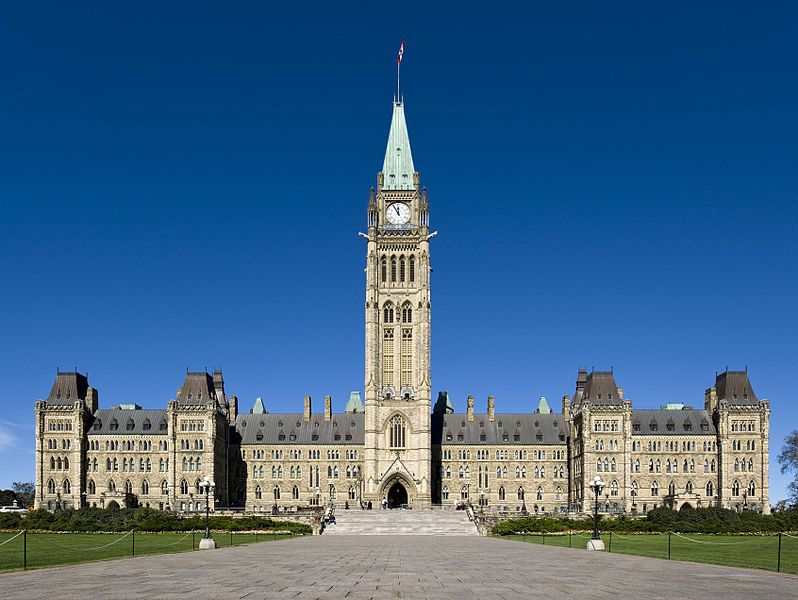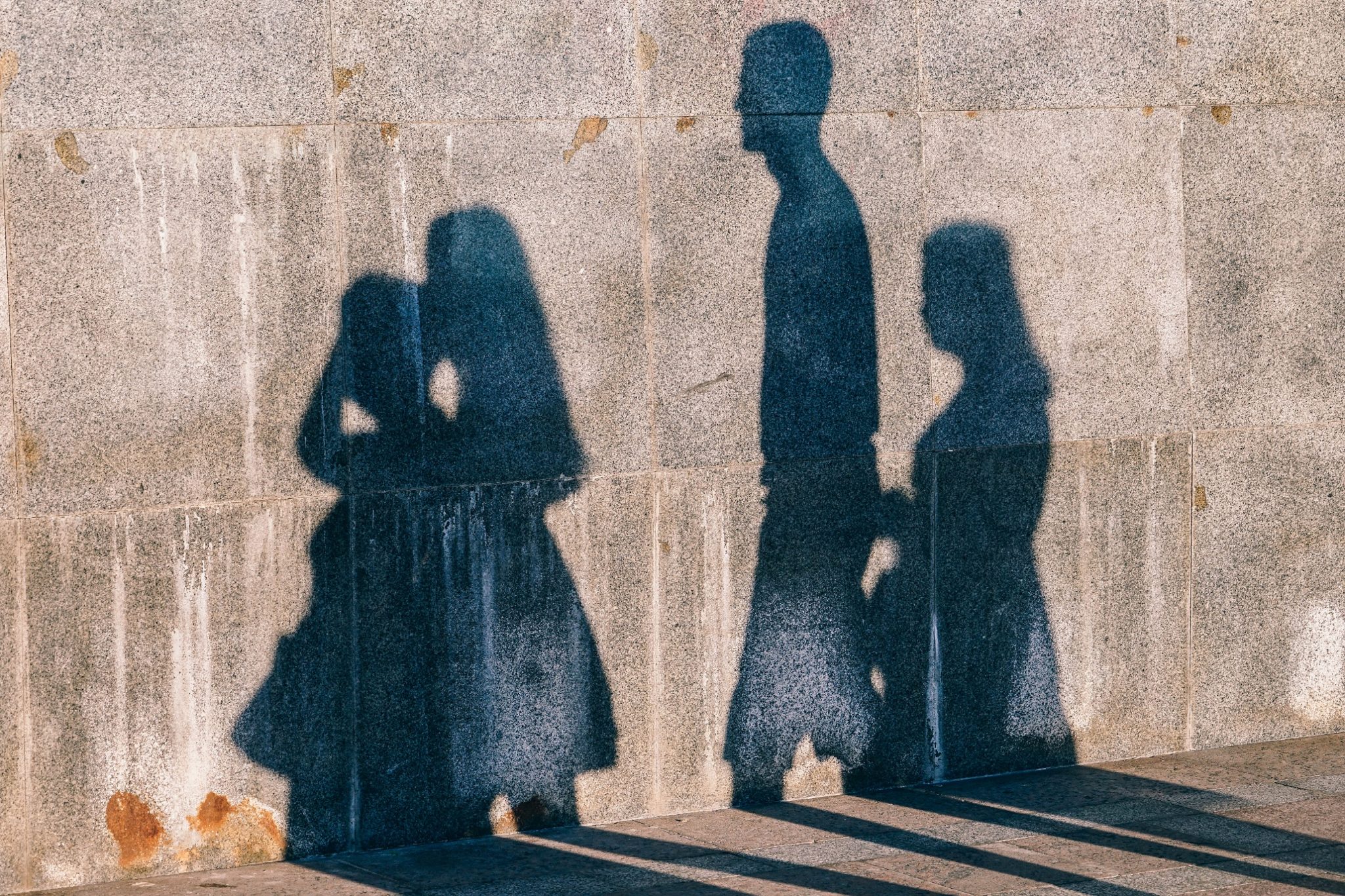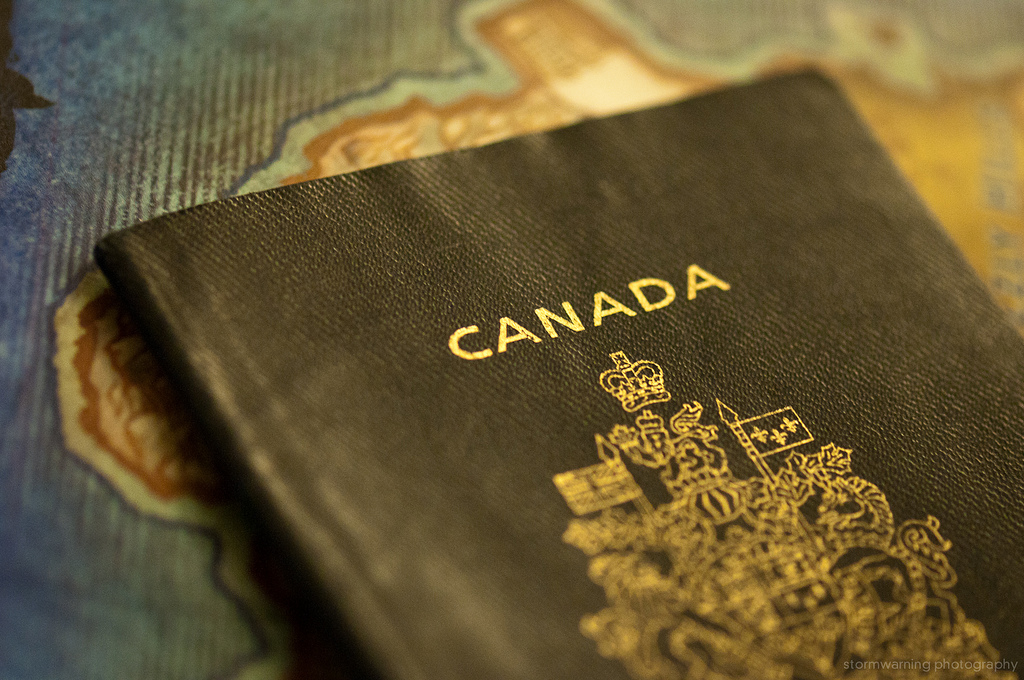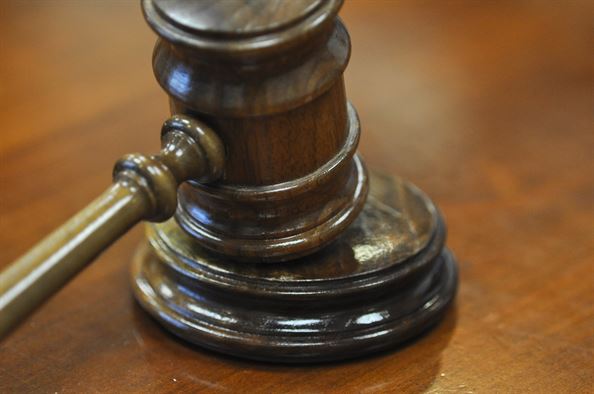Gerami Law, Refugee Lawyers Advocate at LobbyCon 2018
Arghavan Gerami, Refugee Lawyers, and Law Students Descended On Parliament Hill To Advocate Important Changes To Refugee Policies
On February 26, 2018, the Canadian Association of Refugee Lawyers organized “LobbyCon” in Ottawa, training law students with the supervision of refugee lawyers, including our own Arghavan Gerami, to meet with Canadian Members of Parliament in Ottawa and advocate important changes to Canada’s refugee policy.
This year, the focus was on two issues: unfair barriers to accessing permanent residency on humanitarian and compassionate (H&C) grounds and the lack of oversight for the Canadian Border Services Agency (CBSA).
The availability of permanent residency on H&C grounds under section 25 of the Immigration and Refugee Protection Act is restricted in a number of cases. For example, refugee claimants are barred from making a refugee claim at the same time as an application for permanent residency on H&C grounds, and if their refugee claim is rejected, they are barred from applying for permanent residency on H&C grounds for one year from the date their claim was refused.
This means refugee claimants who may not have met the threshold of risk and persecution but had remained in Canada for years for the refugee determination process will not be able to present evidence that they have established themselves in Canada, that they will suffer tremendous hardship to return to their country and that it is in the best interest of their child/children to remain in Canada.
The gap created has a very inhumane impact on these individuals and also results in a loss to Canada. These individuals who have contributed to Canada and Canadian economy should have an opportunity to file a humanitarian and compassionate permanent residency application before they face removal from Canada.
Secondly, the law students and lawyers lobbied MPs concerning the lack of CBSA oversight. The CBSA is the enforcement body for immigration matters; CBSA officers determine the eligibility of individuals apply for refugee status at the border and enforce immigration detention, among other law enforcement responsibilities. The CBSA is the only major law enforcement agency in Canada that is not currently subject to any form of oversight or review. At LobbyCon, CARL members recommended the creation of an oversight body for the CBSA not solely driven by complaints but with the power to initiate its own reviews and investigations. This will allow for greater transparency and accountability and will minimize the power imbalance and potential for abuse of vulnerable individuals.
Canada’s Troubled Refugee System
Refugee Advocates are Losing Faith in Canada’s Underfunded and Overwhelmed Refugee System
Canada’s refugee system has come under fire over the past year as issues with the country’s refugee system due to the influx of refugees to Canada, resulting in lengthy delays in scheduling a hearing for the claimants. The lack of sufficient staff and resources are primarily the underlying reason, and without sufficient resources, Canada cannot uphold its reputation for having a world-class refugee system.
To get help with Canada’s refugee claims process and navigating the system, contact a refugee law office.
The current backlog in the processing of asylum claims has resulted in significant stress and uncertainty. While immigration law requires asylum seekers to have their claims scheduled for a hearing within 60 days, at the present time, these hearings are being scheduled, only to be cancelled and not rescheduled. The current backlog is causing lengthy delays—up to 18 months—leaving many in limbo, waiting for their claims will be heard, and whether or not they will face deportation.
The pending number of claims across Canada as of December 2017 was 41,000—more than the combined claims numbers for 2015 and 2016. This increase in claims and the current backlog in the system are also in part due to the large number of asylum seekers who crossed at unofficial Canada-U.S. borders last year, specifically in Quebec. Furthermore, the lack of available Immigrations and Refugee Board of Canada (IRB) members to handle these cases in Quebec, especially in Montreal where the majority of Haitian asylum seekers have landed, is of course also contributing to the delay.
There are even doubts that the government’s estimate of an 18-month wait time is possible, given the current backlog and the lack of staff to handle these claims. Some worry it may take years, especially for those who appeal their cases to the Refugee Appeal Division after their initial claims are denied.
During these prolonged wait times, asylum seekers will settle in Canada, despite the uncertainty about their future. They will build lives here, become established, even though it may all be over if their claim is rejected, and they have to return to their home countries where they face violence, poverty, and threats to their lives.
Instead of allocating more resources to the IRB as the number of asylum claims increased in 2017, the government decided to conduct an independent review of the IRB’s operations. But IRB members, especially in Quebec, are under a great amount of pressure as they try to handle the massive backlog of cases. Although some measures have been taken, such as assigning a small number of non-Quebec staff to help with the workload, there are still insufficient resources to effectively handle the massive backlog. Even refugee lawyers in Quebec who accept legal aid cases are overwhelmed and in some cases have been forced to refuse cases.
There has also been some criticism of Canada’s efforts in resettling refugees. A recent example is Canada’s handling of the Yazidi refugees and survivors of ISIS that Canada had promised to resettle by the end of 2017. The Canadian government missed the target deadline due to a ban on international flights at an airport in Iraq close to where most Yazidis are living. However, despite the airport’s ban on international flights, some critics argue that Canada may have been able to find an alternative plan to meet its goal earlier in the year. The refugees that are still being processed are set to arrive in 2018, but once the resettlement target number is met, Canada will not be accepting more applications under this initiative—which is a cause for disappointment among refugee advocates who expected Canada to double its target number for 2018.
For more information and help with asylum claims and appeals, contact a refugee law office.
Ontario Reopens Graduate Immigration Streams
A Popular Path to Immigration in Canada Has Opened Again for International Students in Ontario
Beyond attracting skilled foreign workers, Canada is an educational centre for students from around the world. Each province has its own immigration streams, including programs for international students. Provinces are able to nominate an allocated number of applicants each year, and various streams will usually reopen periodically throughout the year. These provincial nominee programs help provinces attract talent for various industries, along with a path to permanent residence.
On January 29, 2018, Ontario’s two popular graduate immigration streams reopened. The Masters Graduate and Ph.D. Graduate streams fall under the Ontario Immigrant Nominee Program (OINP) and are meant to retain international graduates who studied in the province. Unlike other economic immigration streams, applicants for these graduate streams do not need a job offer.
However, these streams do have a limited number of applications. Furthermore, they operate on a first-come, first-served intake, so they often fill up quickly. The Masters Graduate stream closed within an hour of opening this year, though the Ph.D. stream remained open beyond the first day.
Both streams reopened periodically in 2017, and the Masters stream should stay open until Ontario has fulfilled its allocation for the 2018 provincial nominations. The OINP allocation number for 2018 is 6,600 people throughout the province’s various streams.
Due to research opportunities and quality of education, Ontario is a top destination for international students, especially post-graduates. If applicants are approved for a provincial nomination through these graduate streams, they will receive a ‘base’ provincial nomination certificate and may be able to apply for permanent residency status. Although base streams are not Express Entry-aligned, these streams still provide applicants with a path to obtaining permanent residency.
In an effort to attract the world’s top Ph.D. students, the University of Toronto recently decreased its tuition fees for international Ph.D. students. The dramatic decrease in tuition means most international Ph.D. students will pay the same tuition as domestic students. Tuition for the 2017/2018 school year for international students was $23,692.14 plus additional fees, while tuition was only $8,480.14 plus fees for domestic students.
This significant reduction in tuition for international Ph.D. students could make the University of Toronto even more appealing to students from around the globe. The university has already seen an increase in applications from international students, particularly from the US, India, and the Middle East. This increased appeal for Canadian, and especially Ontario, universities could be directly related to the election of U.S. President Donald Trump and his immigration policies.
In comparison to current US policies, Canada seems much more appealing to newcomers, and students are no exception. The paths to immigration in Canada are accessible to the world’s leading graduate students because we value diversity in our schools, workplaces, and society.
“Lost Canadians” Losing Citizenship Due to Archaic Law
Outdated Law Was not Applied Retroactively, Causing Some Canadian Citizenships to be Revoked
Prior to 2009, any second-generation Canadian born outside of the country had to reapply for Canadian citizenship before their 28th birthday. The Canadian government repealed this outdated citizenship law in 2009 but did not make it retroactive. Thus, the law still applied to anyone who missed their birthday deadline prior to the repeal. As a result, there are many Canadians who have lost their citizenship (the so-called “Lost Canadians”) who now fear deportation. For help with the citizenship application process, contact a citizenship lawyer.
Annelise Demos is one of these “Lost Canadians” and a Winnipeg mother of four who recently found out she is no longer a Canadian citizen. She’s now worried about what this could mean for her future. Born in Paraguay, Demos immigrated to Canada with her family in 1980 when she was two years old. She received Canadian citizenship but was one of many who had to reapply for citizenship before turning 28 according to the since-repealed law. Like many, Demos was not aware of this law, and as such missed the application deadline.
When Demos applied for a passport in 2012, her application was denied, and she was asked to complete a proof of citizenship form. After submitting the form, she received a certificate and a letter saying she was a Canadian citizen and could now qualify for a passport.
But six years later, in January 2018, Demos received another letter from Citizenship and Immigration Canada informing her that she is “not entitled to hold a Canadian citizenship certificate.” Demos was asked to return the certificate to the government. Demos is worried about what this means for her family and future and is afraid she may be deported to Paraguay.
Like many “Lost Canadians,” Canada is her only home. Aside from spending the majority of her life in Canada, her family and friends are here, as are her work and family. She must now prove these facts about her life in a plea to the immigration minister, asking that she be granted citizenship due to unusual or special hardship. Records of her entire life in Canada, including records of where she lived and went to school, will be needed as proof for her case.
Her family members, including siblings and cousins, have also faced similar problems, with one case taking three years to resolve, and another resulting in deportation for two months. Out of fear of deportation, Demos plans to keep her citizenship certificate as proof that she is a citizen. This certificate shows that she was recognized as a citizen in 2012, and was granted a Canadian passport.
While immigration officials are aware of these “Lost Canadians” and the hurdles they face, officials have yet to address this possibly life-changing problem. Changes to immigration law are possible, but until then, each person affected must plead their case.
For more information and help with citizenship appeals, contact a citizenship lawyer.
MP Calls for Review Of IRB Complaint Process
NDP MP Joins Refugee Lawyers In Criticism Complaint System Following Allegations Against IRB Decisionmakers
The Board Members at the Immigration and Refugee Board (IRB) hold a sensitive position; they are empowered to decide whether or not refugee claimants will face risk in their home countries, and may be permitted to stay in Canada. Their decisions can significantly impact the lives of vulnerable claimants and their families.
Yet there are reports of IRB decision-makers behaving inappropriately during refugee hearings and causing emotional distress for claimants. Following these allegations, NDP MP and Immigration Critic Jenny Kwan lent her voice to refugee lawyers in calling for a parliamentary review of how the IRB handles complaints. Several lawyers have also raised concerns over the complaint system’s ineffectiveness and lack of transparency.
Alleged Sexism, Incompetence
Complaints have been filed against two IRB judges for their unprofessional treatment of claimants. Former IRB decisionmaker Michael Sterlin is alleged to have made irrelevant, aggressive, and sexist remarks to a refugee claimant who later attempted suicide because she was so distraught following her humiliating hearing. But the IRB dismissed the complaint. Complaints against the second judge, Natalka Cassano, allege incompetence during hearings. One refugee lawyer referred to Castano’s treatment of herself and her client as aggressive and incompetent.
Six months after the lawyer filed a complaint against Cassano, the former chairperson of the IRB responded with a letter agreeing that this behaviour led to an unfair hearing for the claimant. The letter stated appropriate actions would be taken to prevent this from happening in the future. But after requesting details about the progress of the complaint and the actions of the IRB, the lawyer has yet to hear anything more.
Call for Increased Transparency
Both Kwan and immigration lawyers are calling for an independent complaint system so that complaints can be handled fairly and with complete transparency. The current lack of independence in the complaint system (an IRB chairperson handles complaints) increases the likelihood of a biased resolution. Greater transparency and impartiality are a must.
However, IRB did make changes to its complaints system in December 2017, opening an Office of Integrity and promising to publish complaint details annually. Immigration Minister Ahmed Hussen said these changes will lead to a more independent complaint process that is more efficient, fair, and transparent.
Although these two cases of IRB adjudicators paint a less-than-glowing picture of refugee and immigration hearings, not all decisionmakers act unprofessionally. However, those who hold this power over claimants’ futures should be well-informed, open-minded, and compassionate when dealing with claimants. Whether or not they can prove their cases, and no matter what circumstances brought them to the hearings, claimants still deserve to be treated fairly.





